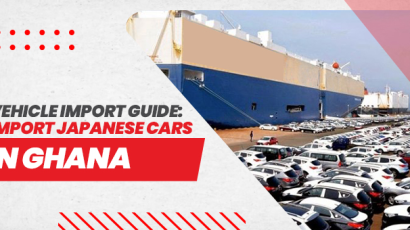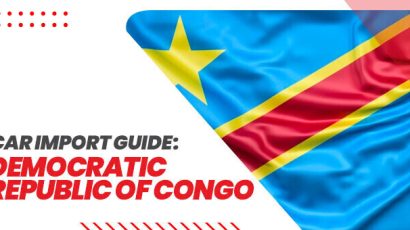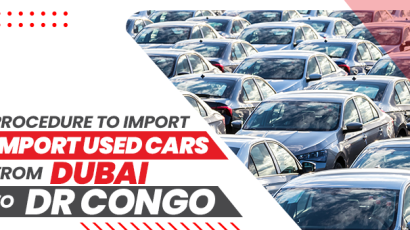
The Tanzanian market for used cars is thriving, offering consumers affordable and diverse options. For many, importing a vehicle is an attractive alternative to purchasing locally due to the wide range of choices available in the international market.
However, importing cars to Tanzania comes with specific regulations that buyers and importers must follow to avoid penalties, delays, or additional costs. In this guide, we’ll walk you through the key aspects of the used car import rules in Tanzania. Furthermore, we will shed light on understanding tax obligations, age restrictions, and inspection requirements that come into play.
Overview of the Tanzania Used Car Market
In Tanzania, used cars represent a significant portion of the automotive market. Vehicles imported from countries like Japan, the United Kingdom, and the United Arab Emirates are particularly popular due to their affordability, reliability, and availability of spare parts.
Tanzania’s used car market benefits greatly from the country’s strategic location and trade policies, making it easy to import vehicles through key ports like Dar es Salaam. However, the Tanzanian government imposes regulations to control the quality of imported vehicles, protect the environment, and regulate the market.
Key Regulations for Importing Cars to Tanzania
When importing cars to Tanzania, prospective buyers and dealers must adhere to several essential regulations. These rules cover areas such as age restrictions, tax obligations, and mandatory vehicle inspections. Here’s a closer look at each of these aspects:
1. Age Limit for Imported Cars
One of the most crucial aspects of importing cars to Tanzania is the age limit. The Tanzanian government has implemented restrictions on the age of vehicles allowed to enter the country. According to current laws:
Personal Cars: Cars should not exceed 8 years from the year of manufacture.
Commercial Vehicles: Trucks and other commercial vehicles have a slightly more flexible age limit but generally should not exceed 10 years.
This age limit aims to curb the importation of older vehicles, which are more likely to emit higher levels of pollutants and require extensive maintenance. Moreover, importers attempting to bring in vehicles older than the permitted age may face substantial penalties or have their vehicles barred from entering the country altogether.
2. Import Taxes and Duties
Importing a car to Tanzania involves paying various taxes and duties. These fees can significantly impact the total cost of bringing in a vehicle, so understanding these financial obligations is crucial. Therefore, the main taxes and duties include:
Import Duty: This is generally 25% of the vehicle’s CIF (Cost, Insurance, and Freight) value.
Value Added Tax (VAT): A 20% VAT is applied to the CIF value plus import duty.
Excise Duty: This varies based on engine size. Cars with an engine capacity below 2000cc typically incur a 5% duty, while those above 2000cc are charged 10%.
Railway Development Levy (RDL): An additional 1.5% of the CIF value is levied for railway development.
Overall, it’s essential to calculate these costs beforehand to understand the true price of your import. Furthermore, importers are encouraged to consult the Tanzanian Revenue Authority (TRA) for updated rates and ensure they are fully compliant with the current tax structure.
3. Pre-Shipment Inspection Requirements
Tanzania mandates that all imported vehicles undergo a Pre-Shipment Inspection (PSI) before being shipped to the country. The primary goal of the PSI is to verify that the vehicle meets Tanzanian road safety standards and is free from any structural or environmental concerns. The inspection also helps prevent the import of stolen or defective vehicles.
The Japan Export Vehicle Inspection Center (JEVIC) is the designated authority for vehicle inspections, especially for imports from Japan. This inspection covers:
- Verification of vehicle condition
- Odometer readings to prevent fraud
- Emission checks to ensure environmental compliance
Any vehicle arriving in Tanzania without a valid inspection certificate may incur hefty fines and could be prohibited from entry. Therefore, it’s wise to schedule the inspection well in advance of shipping to avoid delays and additional costs.
4. Vehicle Registration and Documentation
After the vehicle arrives at a Tanzanian port, it must go through a formal registration process with the Tanzania Revenue Authority (TRA). The registration process involves the submission of all relevant documents and payment of registration fees. Essential documents for vehicle registration include:
- Original Bill of Lading
- Inspection Certificate (issued by JEVIC or an equivalent body)
- Commercial Invoice showing the vehicle’s value
- Export Certificate from the country of origin
- Proof of Payment for all applicable duties and taxes
Completing these steps ensures that the vehicle can legally operate on Tanzanian roads. The TRA will issue a registration certificate and number plates once all paperwork is verified.
5. Environmental Standards and Compliance
As part of its commitment to environmental protection, Tanzania has introduced measures to ensure that imported vehicles meet specific emission standards. The aim is to limit pollution levels and promote a healthier environment. As a result, vehicles with high emissions may be subject to penalties or even restricted from entering the country. Generally, the pre-shipment inspection covers this aspect, so choosing a reliable inspection provider is critical.
6. Shipping and Port Clearance Procedures
The most common port for vehicle imports is the Port of Dar es Salaam. Once your vehicle arrives, it must go through customs clearance, which involves presenting your documents, paying any remaining fees, and clearing the vehicle for delivery.
However, port clearance can be time-sensitive, as demurrage charges apply if the vehicle isn’t cleared within a specified timeframe. Therefore, importers must work with a local clearing agent to expedite the process, as they can help navigate paperwork and ensure compliance with local requirements.
7. Importing Electric and Hybrid Vehicles
Tanzania’s used car import regulations have recently included incentives for electric and hybrid vehicles. Recognizing the benefits of these eco-friendly vehicles, the Tanzanian government offers reduced excise duties on hybrids and fully electric cars. This move is part of an initiative to encourage cleaner, energy-efficient vehicles. However, buyers should still check for inspection requirements and other tax obligations that may apply.
Tips for a Successful Used Car Import Experience in Tanzania
Understanding the import rules is just one part of the process. Here are some tips to make your car import experience smoother and cost-effective:
Work with Reputable Dealers and Inspectors: Choosing reliable dealerships and inspection agencies in the source country can prevent costly mistakes.
Budget for Additional Costs: Remember that total import costs go beyond just the vehicle’s price, covering duties, VAT, shipping, and more.
Stay Updated on Regulations: Tanzanian import rules can change, so regularly check with the TRA for updates.
Choose Newer Models: Opt for vehicles close to the age limit to avoid penalties and ensure better resale value in the Tanzanian market.
Use a Local Clearing Agent: Engaging a local agent for the port clearance process can save time and ensure compliance with Tanzanian customs.
Bottom Line
In summary, navigating the used car import rules in Tanzania may seem challenging, but understanding the key requirements can help simplify the process. By complying with regulations on vehicle age, taxes, and inspections, importers can enjoy the benefits of a vibrant market with high-quality options. So, whether you want a reliable sedan, a spacious SUV, or an eco-friendly hybrid, importing cars to Tanzania offers choices that meet various needs and budgets.









